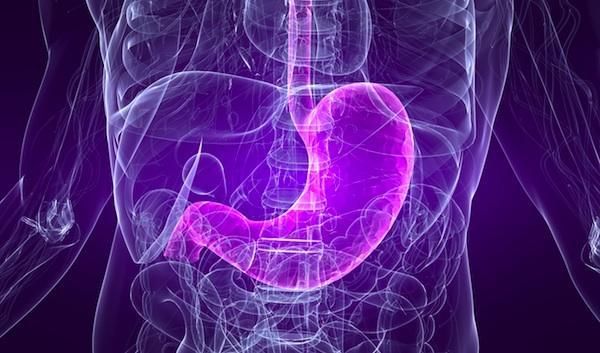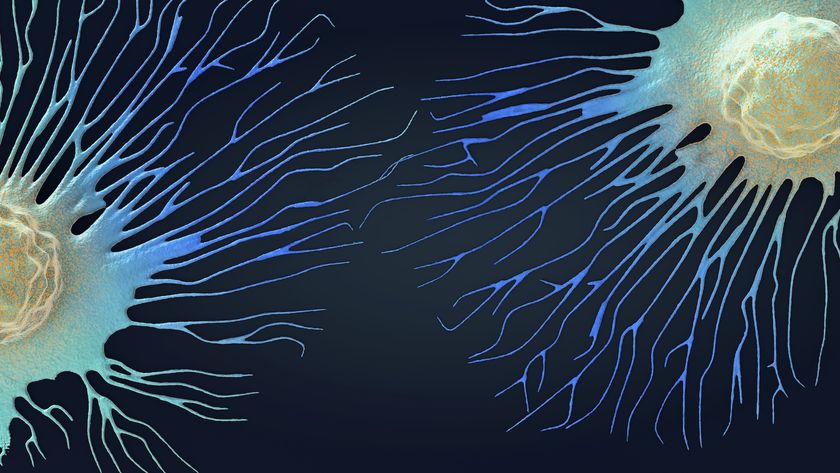Common Stomach Drugs May Increase Risk of Vitamin Deficiency

People who take common stomach acid-suppressing medications may be at increased risk of not getting enough vitamin B12, a new study suggests.
In the study, people who took proton pump inhibitors — medications used to treat acid reflux and other stomach and esophageal conditions — for two or more years were 65 percent more likely to be diagnosed with vitamin B12 deficiency than those who did not take such medications.
And people who took another type of acid-suppressing drug, called histamine 2 receptor antagonists, for two or more years were 25 percent more likely to have vitamin B12 deficiency, the study found. [5 Key Nutrients Women Need As They Age]
The findings held even after the researchers accounted for factors that might increase the risk of vitamin B12 deficiency, such as having diabetes or thyroid disease, or abusing alcohol.
The study found an association, meaning researchers cannot prove a cause-and-effect relationship between the drugs and vitamin B12 deficiency.
But the researchers noted the finding is biologically possible: Stomach acid is needed to help the body take in vitamin B12, because the acid separates the vitamin from the protein to which it is attached.
The findings do not suggest that people should stop taking the drugs if they need them, the researchers said. But doctors should be vigilant when they prescribe the drugs, and use the lowest possible dose that is effective, the researchers said. The findings should also inform discussions about the drugs' known benefits and possible risks, they said.
Sign up for the Live Science daily newsletter now
Get the world’s most fascinating discoveries delivered straight to your inbox.
Vitamin B12 is an essential nutrient for the body, and helps make DNA. Most people get enough of this vitamin through food, but some people are at risk for deficiency, particularly if they have trouble absorbing the vitamin, according to the National Institutes of Health.
Vitamin B12 deficiency has potentially serious symptoms, including anemia and damage to the nerves, the researchers said. Between 1.5 and 15 percent of the population has a vitamin B12 deficiency, according to the NIH.
Previous studies looking at the risk of vitamin B12 deficiency among people taking acid-suppressing drugs have been small, and have yielded inconsistent results.
In the new study, the researchers analyzed information from 25,956 patients with vitamin B12 deficiency living in Northern California, and 184,199 patients without the condition.
About 12 percent of patients with vitamin B12 deficiency had taken proton pump inhibitors (PPI) for two or more years, and 4.2 percent took histamine 2 receptor antagonists. Among people without vitamin B12 deficiency, 7.2 percent took PPIs and 3.2 percent took histamine 2 receptor antagonists.
The researchers estimated that, for every 67 people taking acid-suppressing drugs for two or more years, one person would develop vitamin B12 deficiency.
People taking higher doses of PPIs faced a higher risk of vitamin deficiency, according to the study. And the link between acid-suppressant use and vitamin B12 deficiency decreased after people stopped taking the medication.
"At minimum, the use of these medications identifies a population at higher risk of B12 deficiency, independent of additional risk factors," the researchers, from Kaiser Permanente in Oakland, Calif., wrote in the Dec. 11 issue of the Journal of the American Medical Association.
A 2011 study suggested that acid-suppressing drugs increase the risk of complications from infections.
Follow Rachael Rettner @RachaelRettner. Follow LiveScience @livescience, Facebook & Google+. Original article on LiveScience.

Rachael is a Live Science contributor, and was a former channel editor and senior writer for Live Science between 2010 and 2022. She has a master's degree in journalism from New York University's Science, Health and Environmental Reporting Program. She also holds a B.S. in molecular biology and an M.S. in biology from the University of California, San Diego. Her work has appeared in Scienceline, The Washington Post and Scientific American.












